Intercultural Crosstalk
People Who Taught Japanese in Their Home Countries ①Motivation for Becoming a Japanese Language Teacher
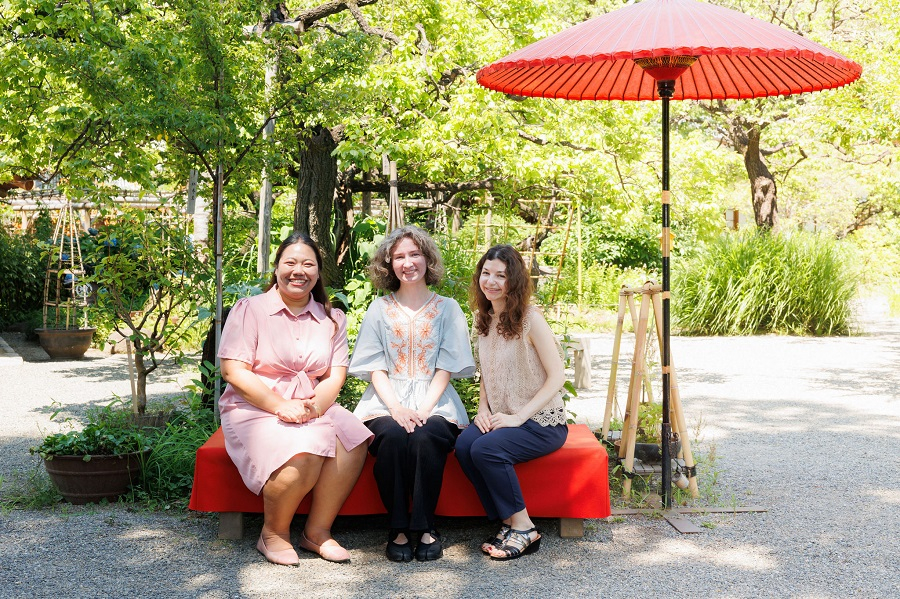
Profiles
Nisa (From Thailand)
- Years of residence in Japan
- 1 years
- Native language
- Thai
- Favorite Japanese words
- Akiramenaide (Don’t give up)
- Favorite places in Tokyo
- Komagome
- Favorite food
- Tonjiru (pork soup)
- Hobbies
- Gardening
- What I wanted to be when I was a child
- I didn’t have any particular occupation in mind, but I wanted to be helpful to people.
Olga (From Ukraine)
- Years of residence in Japan
- 3 years
- Native language
- Russian, Ukrainian
- Favorite Japanese words
- “Ringo” (apple)
- Favorite places in Tokyo
- Around Ueno Station
- Favorite food
- Delicious salads and bread
- Hobbies
- Studying in various ways. Learning interesting things.
- What I wanted to be when I was a child
- Doctor
Maria (from Bulgaria)
- Years of residence in Japan
- 5 and a half years
- Native language
- Bulgarian
- Favorite Japanese words
- “Okaeri” (Welcome home)
- Favorite places in Tokyo
- Along the river between Suidobashi and Yotsuya, Tokyo Station to Ginza, and the walking route from Meguro to Shibuya. I could walk around Inokashira Park forever!
- Favorite food
- Soba noodles, yakitori, sushi
- Hobbies
- Walking, Pilates
- What I wanted to be when I was a child
- Doctor, Dentist
Round 1: Motivation for Becoming a Japanese Language Teacher
Round-table discussions with “People who taught Japanese in their home countries” will be presented in this 3-part series.
Just as there are Japanese teachers teaching English in Japan, there are many foreign teachers teaching Japanese around the world. In the first episode, we hear from 3 participants about their reasons for choosing to become Japanese language teachers and their backgrounds.
What Sparked Your Interest in Japanese and Motivated You to Start Studying It?
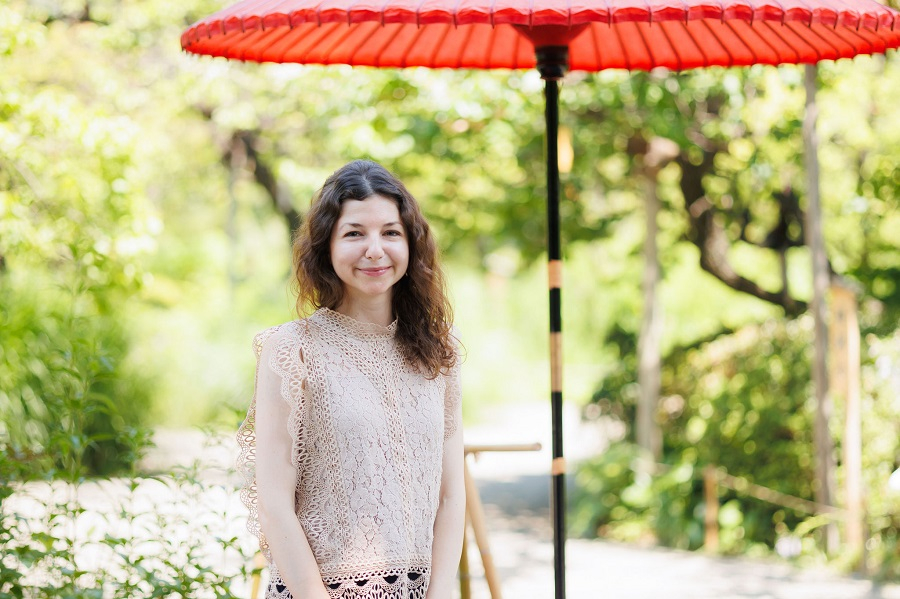
I like unusual things. When I was in high school, I was fascinated by the cultures of Asia, especially Japan and China, which are far from my home country of Ukraine. What I liked most about Japanese culture was movies. I watched films by Akira Kurosawa and Takeshi Kitano and found the Japanese culture depicted in them very interesting. I started learning Japanese when I entered university.
At first, I was interested in foreign languages. Since I loved South American culture, I had planned to study Portuguese in college. However, when I was preparing my application documents, a friend suggested, “Portugal is close, so you can visit anytime. Why not study a country that’s farther away?” I remembered the souvenirs my father had brought back from Japan during his training program, which made me feel a little more connected to the country. That’s why I decided to choose “Japanese” when submitting my application.
It’s the same for me! I was debating between Japanese and Chinese, and made my decision when I submitted my application.
I love K-pop, and I studied Korean in high school. I applied to major in Korean in university, but my friends told me, “If you fail to get into your first choice, you won’t be able to go to university.” So, I reluctantly chose Japanese as my second choice and Chinese as my third choice. I ended up getting accepted into the Japanese major.
It’s interesting that all 3 of you chose that major when enrolling.
That’ true.
Japanese wasn’t my first choice, so when I was accepted, I honestly thought, “I don’t want to go to university” (laughs). But my family told me, “If you want to study languages, there must be something in common,” so I decided to start studying Japanese.
At first, I couldn’t read Japanese at all. It was difficult because the other students could read to some extent. But after studying abroad for 2 months during my time at university, I really came to love Japan.
I also entered without any knowledge, and when I learned in the first class that there were hiragana, katakana, and kanji, I thought, “This is impossible, I’m going to quit in a week” (laughs). But the teachers and classmates were all very nice, so I was able to continue.
I also started learning Japanese from scratch at university. All of my teachers were Japanese, including those who came through the JICA program. It was interesting to learn about Japanese culture, and I grew to love Japan.
How Does Your Native Language Differ from Japanese?
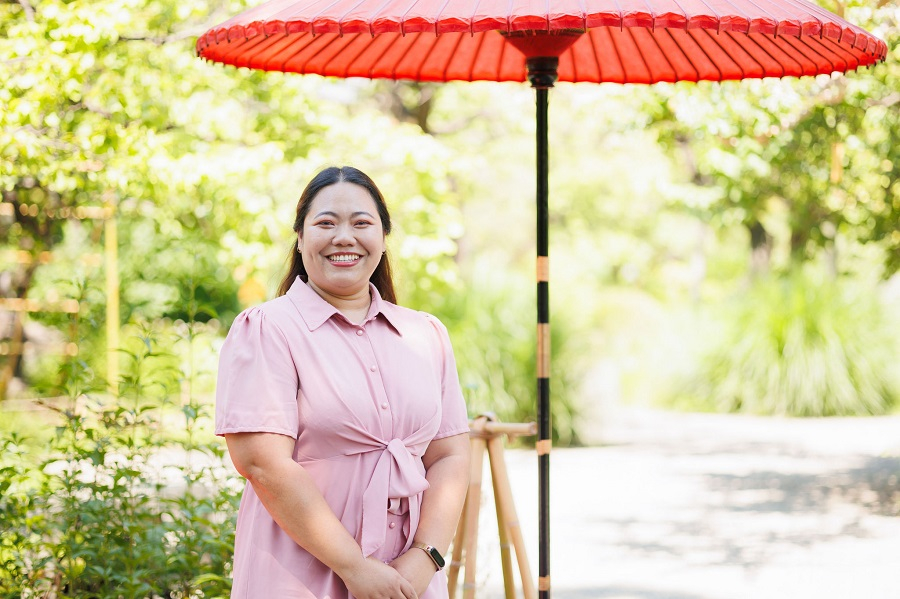
There are many differences. My native language, Bulgarian, uses only one type of Cyrillic alphabet, but Japanese uses hiragana, katakana, kanji, and even Roman letters. There are some similarities, but there are many differences.
Also, the fact that people don’t speak directly was confusing at first. If you say, “Please have some tea,” and they reply, “That’s ok,” you might think they want you to drink the tea. But in reality, it means “I don’t want any.”
The order of parts of speech is the biggest difference. In Japanese, the word order is “rice, eat,” but in Thai, it’s the same as in English: “eat, rice.” There was a time when I was confused and thought, “Why don’t they use the same word order even though it means the same thing?”
In terms of difficulty, I think Thai is harder. Thai verbs have difficult words that are only used in written language and are not commonly used in everyday speech. Even native speakers don’t know these difficult words. They look them up in a dictionary.
The language I find easiest to speak is Russian, and I also speak Ukrainian, English, and Japanese. Each language is different, so I don’t really compare them. However, when I taught Ukrainian and Russian to Japanese people, everyone was confused by the fact that conjugation changes depending on the connection between parts of speech.
Why Did You Decide to Become a Japanese Language Teacher?
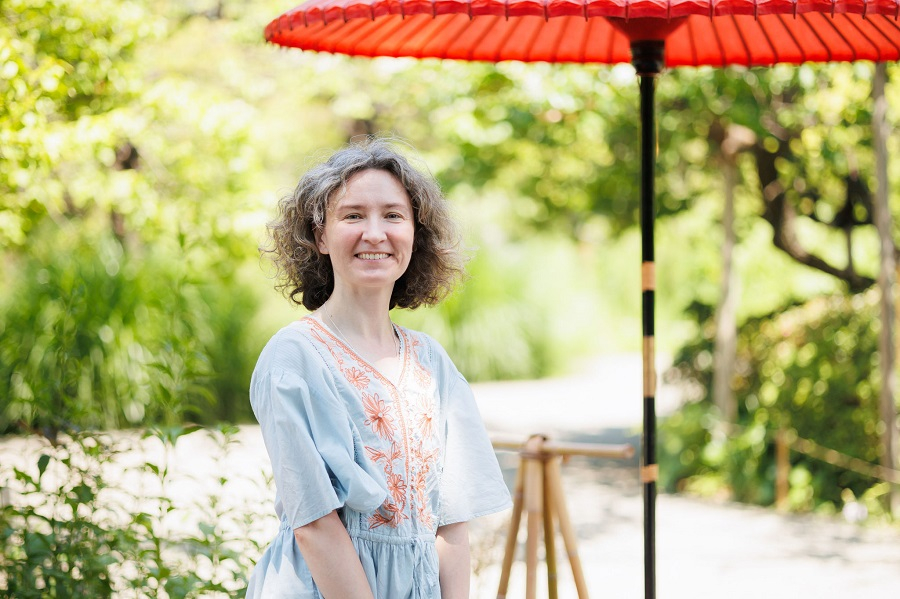
I graduated from the Faculty of Education, so I thought I had no choice but to become a teacher after graduation.
During my teaching internship, the students in my class were divided into those who wanted to study and those who didn’t. The students who didn’t want to study sat at the back, and the teacher only taught and asked questions to the students at the front. I remembered how, when I was in university, I couldn’t speak Japanese and the teacher never called on me to answer questions. At that moment, I strongly felt that I wanted to become a teacher and teach even the students who didn’t want to study in a fun way.
I was unsure about my career path after graduating from university. I was looking for a job that would allow me to use my Japanese language skills, and then a position became available as a substitute teacher because the teacher who had been teaching Japanese at my university was going to Japan. I had always been interested in teaching, so after graduating, I obtained my teaching license and started teaching right away.
Like Maria, I also wanted to work in a job that involved using Japanese. However, there weren’t many such jobs in my town. So, even while I was in university, I volunteered to teach elementary school students and participated in events to make myself stand out. My efforts paid off, and after graduation, I was hired as a Japanese language teacher at my university.
What Was Your Japanese Language Level When You Became a Japanese Language Teacher?
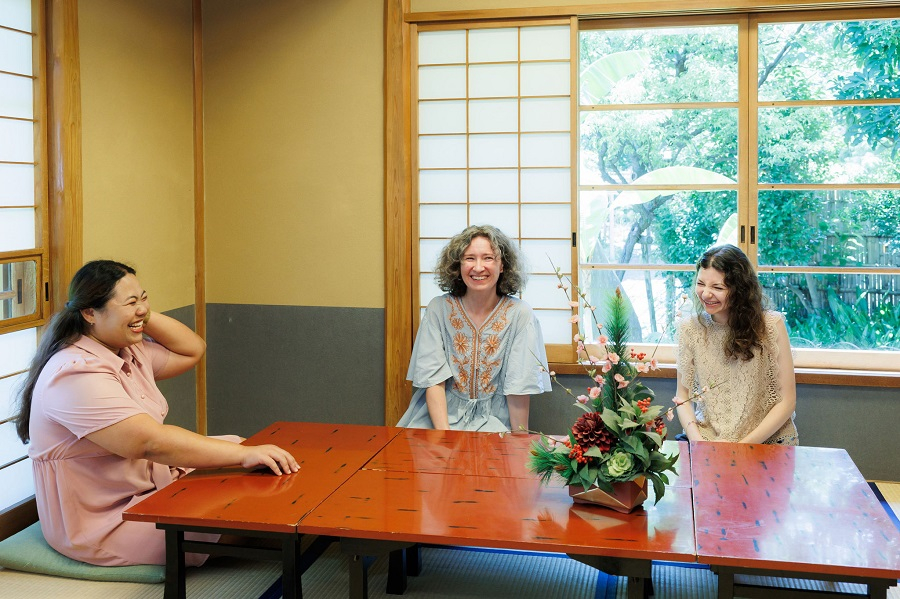
In terms of the JLPT, I think I was at about N4 (beginner) level. My first student was a high school student, so the content I taught was simple. I only taught hiragana and katakana, and did not teach kanji. In terms of language level, it was limited to self-introductions and everyday conversation.
When I was a university student, I studied abroad in Japan for a year. After returning home, I started teaching Japanese at a university and high school, but I felt that my language skills were not yet sufficient. Some of my students had Japanese parents, so I felt a little nervous when they asked me questions in Japanese.
When I started working as a Japanese language teacher at a university, I was at about the N3 level. After teaching for a year, I took the N2 exam, but I totally failed. After studying abroad in Japan through a training program sponsored by the Japan Foundation, I finally passed the N2 exam.
The difference between N3 and N2 is huge, isn't it?
It really is. I don’t even know how to study for it.
I also had an experience where I was flustered by questions from students with high Japanese language skills, just like Maria said. I passed N2 after studying for a while, but even then, my language skills were still not good enough to teach.
In the first part, we asked 3 participants, who have taught Japanese in their respective countries, about what motivated them to become Japanese language teachers.
In the second part, we will discuss Japanese language education in each country in detail, focusing on the theme of “Teaching Japanese.”
── Continued in the Following Issues
